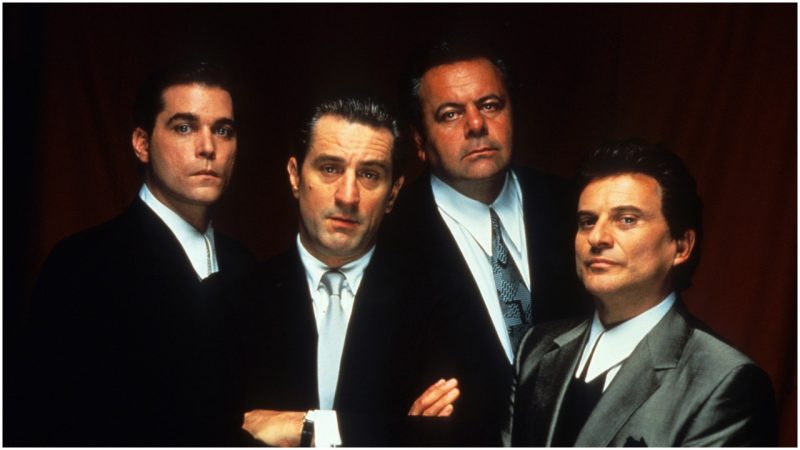From the moment when Henry Hill, played by Ray Liotta in Martin Scorsese’s Goodfellas, uttered the now legendary words: “As far back as I can remember, I always wanted to be a gangster,” the viewer knew that this was going to be unlike any other mob movie.
Few would deny that Goodfellas has become a classic, and Scorsese, in making it, arguably produced the ultimate gangster picture and set the bar pretty high. But Goodfellas is so much more than just a mob movie. It is also one of the best satires of the American dream, a rise-and-fall movie, a tragedy, and a comedy.
The movie was based on a 1986 nonfiction book by Nicholas Pileggi called Wiseguy. Scorsese thought there was no point in making a gangster movie, but after reading Wiseguy, he changed his mind. One of the key parts of the book is the infamous 1978 Lufthansa heist, a robbery at John F. Kennedy Airport that turned into the longest-investigated crime in America. For more than 35 years afterward, police kept working the case. In 2014, one of the Lufthansa gangsters, Vincent Asaro, then 79, was finally arrested for it, only to be acquitted in November 2015 of all charges in Federal District Court in Brooklyn.
In the 1980s, when Scorsese read Pileggi’s book, what he found particularly interesting were the details, so he called the writer to tell him he wanted to make a movie. The result was a cinematic masterpiece.
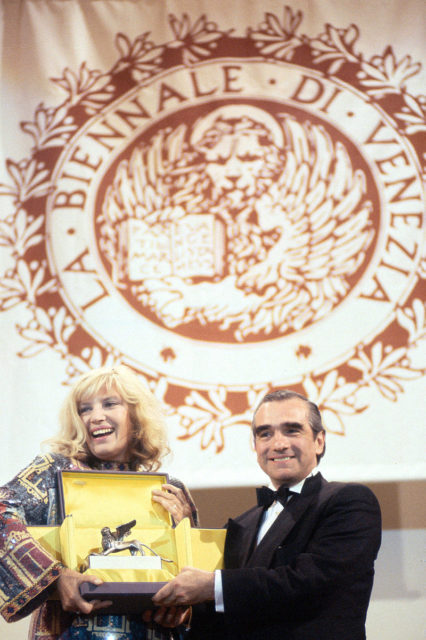
It is no surprise that the iconic movie has a great number of ties to the actual Mafia, particularly the Lucchese crime family, and the real-life story seems to be as intriguing as the one that appeared on the big screen in 1990. The mastermind behind the Lufthansa heist was the mobster Jimmy Burke (“Jimmy Conway,” played by Robert De Niro, in Goodfellas). Accompanied by several associates, including Parnell “Stacks” Edwards (played by Samuel L. Jackson) and Tommy DeSimone (played by Joe Pesci), he managed to steal $5 million in cash and an additional $875,000 in jewelry from John F. Kennedy Airport.
In the history of the United States, there has never been a bigger cash robbery; the value of the money stolen in 1978 is estimated at around $20 million in today’s currency. This was no movie, this was real life, with real people who masterminded a perfect plan to pull of an impossible heist, one that changed organized crime in New York on many levels.
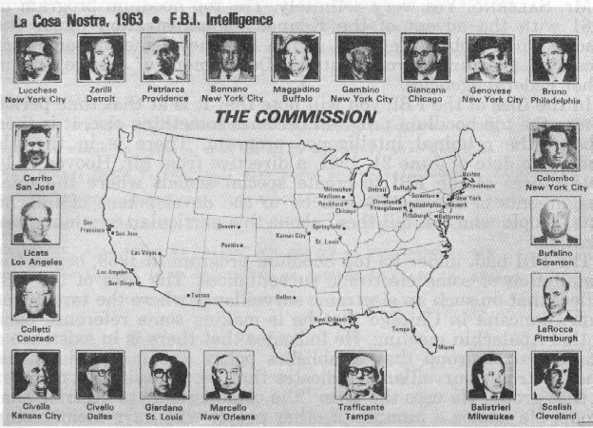
What followed was even more staggering as the mastermind, Jimmy Burke, also known as Jimmy the Gent, had to spend many nights sleeping with one eye open, fearing that some of the members of his crew might “drop a dime” and rat out to the police, so he murdered or orchestrated the murders of almost everyone involved in the robbery.
Burke had some strong ties to the Lucchese family, but his Irish descent made it impossible for him to get his “button.”
Born on July 5, 1931, in New York, Burke spent most of his childhood years in an orphanage, where he often suffered mental, physical, and sexual abuse, which most probably played a crucial role in his sociopath criminal lifestyle.
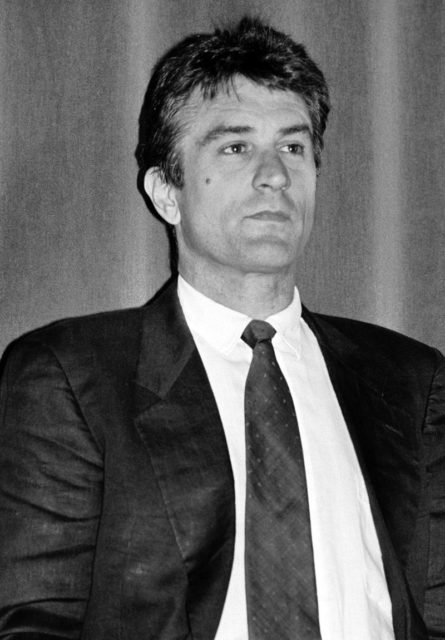
He was 13 years old when the Burke family adopted him, which was supposed to be a turning point in his life as they treated him well, but teenage Jimmy chose the life of crime. Nonetheless, he never forgot that the Burkes loved him like he was their own son, and later he made sure they never experienced poverty.
He was only 18 when he started passing off counterfeit checks, before he was busted and served five years in prison. What impressed the “wiseguys” of the time was that the young boy didn’t say a word to the police about his friends involved in the crime, and when he got out of prison he was welcomed by the Lucchese crime family and was able to move on to the next stage of his life, that of being a close associate of the mob.
“It was a glorious time. Wise guys were all over the place… It was when I met the world, and it was when I first met Jimmy Conway. He couldn’t have been more than 28, or 29 at the time… but he was already a legend. He’d walk in the door and everybody who worked the room went wild. He’d give the doorman a hundred just for opening the door. He shoved hundreds in the pockets of the dealers who ran the games. The bartender got a hundred just for keeping the ice cubes cold.” This is how Henry Hill describes Jimmy Conway in Goodfellas and it’s actually quite similar to the real life character of Jimmy Burke who mentored both Thomas DeSimone and Henry Hill back in the 1960s. The three of them would go on to become partners and an inspiration for Pileggi’s Wiseguy and the movie Goodfellas.
Law enforcement was never able to come up with enough evidence to indict Burke for the Lufthansa theft or related murders. He died of cancer in 1996.
Born on June 11, 1943, in Brooklyn, New York, Henry Hill always wanted to become a gangster and his neighborhood was the right place to become one. He started his life of crime at the age of 13, acting as an errand boy for Paul Frank “Paulie” Vario, who was a captain in the Lucchese family and served as an inspiration for the character Paul Cicero (played by Paul Sorvino in Goodfellas).
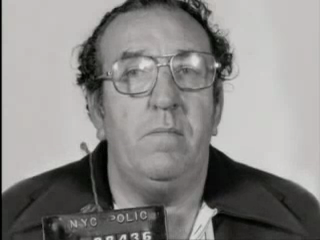
The young boy knew that he belonged in the Mafia, and to him, being one of the notorious gangsters “meant being somebody in a neighborhood that was full of nobodies.” As an adult, he was sentenced to 10 years in jail after he beat up John Ciaccio for skipping a bet. But once in jail, he realized that wiseguys were treated quite differently from the other prisoners. Who wouldn’t remember the iconic dinner in prison scene in Goodfellas where Henry, Paul, and the rest of the crew enjoy the time they spent in jail? Delicious food, scotch, cigars, and even a delivery of lobsters are among the privileges they could afford while there.
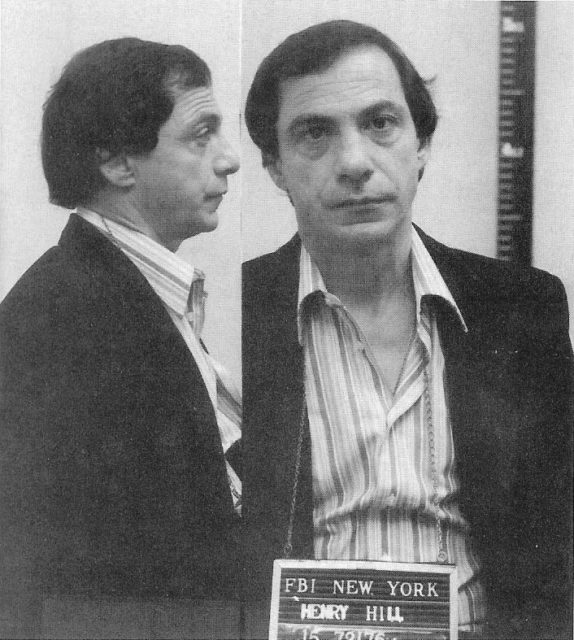
When the less than terrible days in prison were over, Hill was back to organized crime and got seriously involved in the illegal drugs business. In fact, it was so serious that Hill himself became an addict and realized that the feds were after him. If caught, he knew that this time he would serve many long years in prison and decided to become a federal witness. His testimony led to 50 arrests, including the arrest of Vario.
Together with his wife and children, Hill entered the witness protection program but was later expelled from the program due to drug charges. He spent the following years fearing that he might get killed by mobsters but died of natural causes in a Los Angeles hospital on June 12, 2012.

Perhaps the most likable character in Goodfellas and unquestionably one of the most famous villains in film history is Tommy DeVito (played by Joe Pesci). In real life, he was known by the name Thomas DeSimone. Nicknamed “Two-Gun Tommy” or “Tommy D,” DeSimone too stepped into the world of crime early in his life, joining Paul Vario’s crew in 1965, and according to Henry Hill, he committed his first murder two years later, when he was only 17 years old.
His courage and determination were widely known in Mafia circles, but it was his short temper that would bring him a lot of trouble throughout his life. He was a “pure psychopath,” according to Henry Hill.
No one knows for sure how long the list of people killed by DeSimone is, but surely there are some notorious killings attributed to Thomas DeSimone and some of them are masterfully portrayed in Scorsese’s Goodfellas.
DeSimone’s efforts were about to pay off in 1979 as he was told he was about to become a made man of the Lucchese Family. However, instead of becoming a made man, he got a bullet in the head after the Gambino family and Lucchese family decided to liquidate him because he had killed Billy Batts of the Gambino family, a made man.
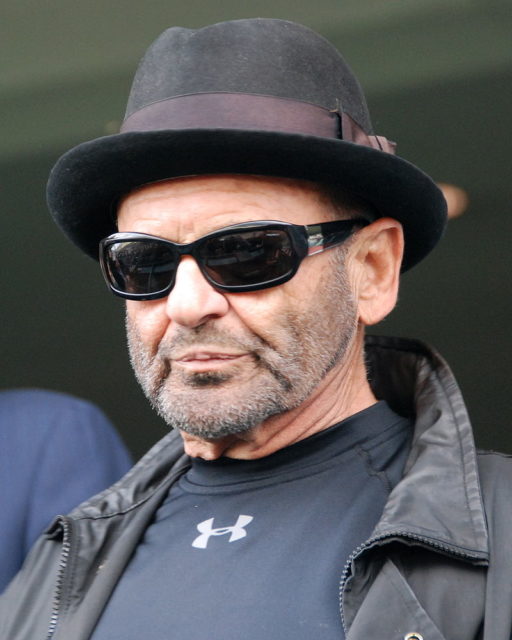
The life of crime is clearly a dark world where anyone can be murdered for the slightest mistake. And if you choose that life, you know there is no turning back. Mobsters have to stick by certain principles and obey them. Scorsese’s idea was to make the movie as messy as possible and Goodfellas‘ frenetic pacing accurately reflects what happened in those days. It can be said that the movie is like a documentary in which only the names are changed … slightly. These characters really existed, and in one way or another, they paid the price for their horrendous crimes.
Related story from us: Al Pacino traces his ancestry to the actual town of Corleone in Sicily
It’s a life that is obviously hard to give up. The elderly gangster who in 2015 was tried and acquitted for the Lufthansa Heist, Vincent Asaro, was arrested again this year. This time he took a guilty plea for ordering the April 2012 road rage torching of a Queens man’s car. The driver of the “getaway car” from the Queens crime? Twenty-three-year-old John Gotti, the grandson of the late Gambino boss John Gotti. Both Asaro and Gotti will be sentenced for their crime later this year.
Until then, Asaro remains behind bars.
